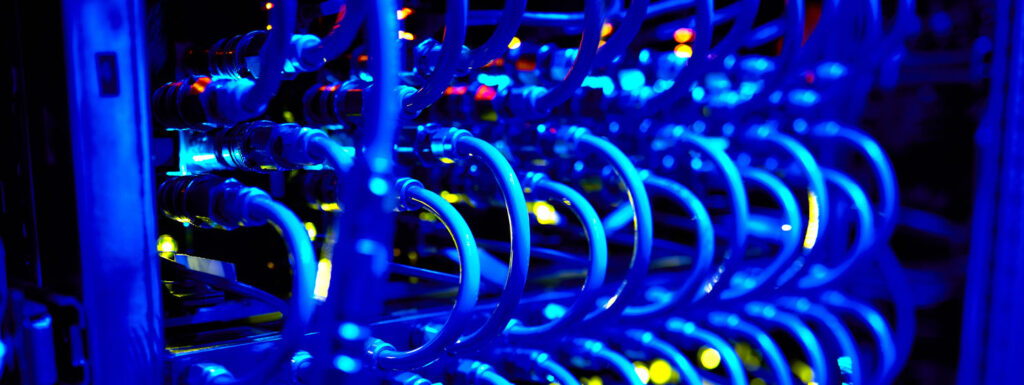El Capitan, a supercomputer powered by AMD (NASDAQ: AMD) chips, has become the world’s fastest supercomputer. While it’s over 5 million times faster than a typical home computer, its developers say it poses no threat to the cryptography techniques that underpin blockchain technology.
El Capitan was developed by the Lawrence Livermore National Laboratory, a federal research facility based in California, in partnership with AMD, HP (NASDAQ: HPQ), and the Department of Energy (DOE). In the biannual Top 500 list of the world’s fastest supercomputers, it toppled the reigning champion Frontier, hitting a maximum performance of 1.7 million teraflops and 2.79 quadrillion calculations per second.
In layman’s terms, Jeremy Thomas, one of the minds behind the project, noted that “it would take more than a million of the latest iPhones working on one calculation at the same time to equal what El Capitan can do in one second.”
Like many other supercomputers, El Capitan’s immense power is being channeled to simulations. Currently, it’s being used to run simulations for nuclear blasts to better understand the devastation that these weapons could set off.
Thomas dismissed fears that supercomputers would advance enough to threaten blockchain technology as unfounded. Despite being unimaginably powerful, El Capitan still processes data in binary form. Its superpower comes from task parallelization, where it handles millions of tasks simultaneously. Experts say this is unlikely to crack blockchain technology’s cryptographic techniques.
Quantum computers are a whole different ballgame. Unlike supercomputers, quantum computers are not limited by the 0s-and-1s binary nature of computing, relying instead on qubits, which can exist in multiple states at once or be linked together for infinitely faster processing.
In October, Chinese researchers from Shanghai University claimed to have cracked classical encryption techniques with a quantum computer for the first time. Despite this and other similar claims, most experts believe we’re still over a decade away from these computers posing a substantial threat.
Still, public and private entities are investing in post-quantum security. Apple (NASDAQ: AAPL) and Google (NASDAQ: GOOGL) have already released updates that they claim are quantum-proof. Several governments are also investing millions of dollars in quantum security technologies as the threat of quantum- and artificial intelligence (AI)-powered cyberattacks rises daily.
Google launches most advanced quantum error correction system
In the quantum computing field, Google has introduced the most advanced AI-powered system for identifying quantum computing errors. Known as AlphaQubit, it clocked up to a 30% improvement in some tests and could bring quantum computers closer to real-world applications.
AlphaQubit is the result of a collaboration between a team of AI researchers from Google DeepMind and a quantum team from Google Quantum AI.
Quantum computers perform leaps and bounds above classical computers. While the latter relies on bits (0s and 1s), quantum computers use qubits, which can exist in multiple states simultaneously and be linked together for exponentially faster and more complex processing. Some quantum computers, like Google’s Sycamore, have completed a task in under 200 seconds that would have taken a classical computer 10,000 years.
However, quantum computing is incredibly fragile and can be disrupted by the slightest environmental changes. This has long hampered its use for practical purposes, making identifying and correcting quantum errors one of the more critical pursuits for researchers in the field.
“If we want to make quantum computers more reliable, especially at scale, we need to accurately identify and correct these errors,” Google says in its paper, published in the British scientific journal Nature.
The Google team has been working on error correction for its Sycamore quantum computer for years. Sycamore uses advanced methods to correct errors, such as creating single logical qubits from multiple hardware qubits. AlphaQubit is an extension of this work and is essentially a new way to find and correct these errors for Sycamore and other quantum computers.
According to the Google team, AlphaQubit improved error correction by 6% when the parameters were geared toward accuracy and by 30% in faster, albeit less accurate, tests.
The team concludes that AI and machine learning could be the solution to identifying and correcting quantum errors. AlphaQubit’s AI-powered system learned about noise and leakage errors from real experimental data and was able to identify such errors in real-world simulations.
“This ability to use available experimental information showcases a strength of machine learning for solving scientific problems more generally,” Google says.
While a big step in quantum computing, AlphaQubit is only foundational, and much more research and development will be needed before quantum computers become useful tools beyond scientific experiments. Currently, these computers have an error rate of one in a thousand; according to some researchers, they need to reduce this to one in a trillion to become practical.
Watch: Adaptable blockchain system to tackle real-world problems
title=”YouTube video player” frameborder=”0″ allow=”accelerometer; autoplay; clipboard-write; encrypted-media; gyroscope; picture-in-picture; web-share” referrerpolicy=”strict-origin-when-cross-origin” allowfullscreen=””>

